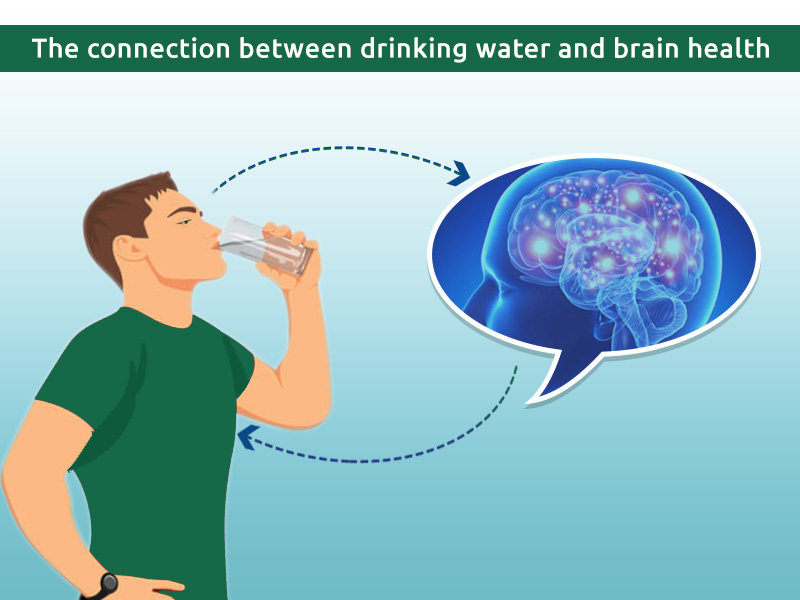Dehydration decreases cognitive function

Dehydration Decreases Cognitive Function

Dehydration is a condition that occurs when the body loses more fluids than it takes in. It is commonly known that staying hydrated is important for overall health. However, what many people may not realize is that dehydration can also have a significant impact on cognitive function.
Research has shown that even mild dehydration can negatively affect brain health and cognitive performance. A study conducted at the Georgia Institute of Technology found that dehydration equivalent to 1.5% loss in body weight can lead to impaired cognitive function, including decreased attention, reduced coordination, and impaired short-term memory. These effects can occur within just a few hours of dehydration onset and can worsen as dehydration persists.

One possible reason for this decline in cognitive function is the impact dehydration has on brain structure and function. When the body is dehydrated, blood flow to the brain decreases, resulting in reduced oxygen and nutrient delivery. Additionally, dehydration can disrupt the balance of electrolytes, such as potassium and sodium, which are essential for proper brain function.
The human brain is composed of approximately 75% water, and adequate hydration is necessary to maintain optimal brain health. Water is essential for the proper functioning of neurotransmitters, which are responsible for transmitting signals between brain cells. When dehydration occurs, the brain may not be able to perform at its best, leading to difficulty in concentrating, processing information, and making decisions.
It is not only cognitive performance that is affected by dehydration but also mood and emotions. Studies have found that even mild dehydration can lead to negative mood states, increased feelings of anxiety, and decreased overall well-being. The brain relies on proper hydration to regulate neurotransmitters and hormones that influence mood and emotions.
Maintaining proper hydration levels is crucial for individuals of all ages. In children, dehydration can impair learning and academic performance, while in older adults, it can contribute to cognitive decline and increase the risk of dementia. Therefore, it is essential to prioritize hydration as part of a healthy lifestyle.
To stay adequately hydrated, it is recommended to drink water throughout the day, even when not feeling thirsty. Other beverages such as herbal tea and fruit-infused water can also contribute to hydration. Avoiding excessive caffeine and alcohol intake, which can increase urine production and lead to dehydration, is advised.
In conclusion, dehydration has a significant impact on cognitive function. It can impair attention, coordination, short-term memory, and overall brain performance. Considering the vital role of the brain in our daily lives, maintaining proper hydration is crucial for optimal cognitive function. By keeping ourselves adequately hydrated, we can ensure that our brains can operate at their highest capacity and support overall brain health.
Source: Los Angeles Times
Share
Related Posts
Quick Links
Legal Stuff

